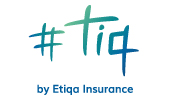If you have the chance to pay off your mortgage or invest your money, which one would you choose?
Best investment platforms on SingSaver
Tiger Brokers | Syfe | City Index | Stashaway | POEMS | SAXO | Interactive Brokers | moomoo | Endowus | IG Trading | CMC Markets | ProsperUs | Webull
Of all the debts that we have, the biggest (and longest) is our mortgage. Not surprisingly, most people would be eager to pay off their mortgage ahead of schedule so that they can reduce or eliminate their debt, and save thousands of dollars in interest payments.
So, while you may dream of the day when your mortgage is fully paid off, you may also be thinking about whether it makes sense to invest your money instead.
Plus, while paying off your mortgage early can provide peace of mind, it's essential to consider other financial goals and obligations. For instance, if you have high-interest debts like personal loans or are planning for future CPF payments, it might be wiser to allocate extra funds towards those areas first to optimise your overall financial health.
Let’s take a look at some of the reasons to consider before deciding to pay off your home loan or invest your money.
What to consider before paying off your mortgage early
Is there a prepayment penalty?
When you take a loan from a lender (e.g. bank) to buy a property, you will need to pay back the full principal amount on top of the interest charged. Typically, you pay this in monthly instalments over a tenure of about 20 to 30 years.
For example, say that you took a home loan of S$1 million over a 25-year period from a bank. Assuming the bank charges you a 2% interest per annum, the total interest you will need to pay over 25 years is S$271,563.02, with a monthly payment of S$4,238.54.
Now, perhaps you would like to fast-track your mortgage payments by 10 years, making it a 15-year loan instead. Assuming the interest rate remains the same, your monthly payments will go up by S$2,196.55 to S$6,435.09.
| Interest rate | Loan tenure | Monthly instalments | Total interest payable |
| 2% | 25 years | S$4,238.54 | S$271,563.02 |
| 2% | 15 years | S$6,435.09 | S$158,315.66 |
However, the total interest payment will go down to S$158,315.66. By shaving 10 years off, you would have saved S$113,247.36 in total, or $11,324.74 a year.
The caveat: some banks charge you a 1.5% prepayment penalty to make up for lost interest. So be sure to check your current mortgage terms or with your bank before making any changes. You may also consider refinancing your home loan to one that has a shorter tenure or lower interest.
Related to this topic: Rising Interest Rates And The Effect On Mortgage Debt In Singapore
Do you have enough emergency funds?
While paying off your home loan might mean that you’ll be free from some financial burden, you should never deplete your savings.
A good rule of thumb is to have at least three to six months of expenses stored as emergency funds. This will help to keep you afloat should something unexpected happen, such as a job loss or sudden medical costs.
Without some buffer, you may resort to using your credit card or borrowing additional loans, which will backfire and leave you even deeper in debt.
Tiq Home Insurance is one newbie-friendly, flexible plan to take up, be it for new homeowners or those with a sudden realisation that HDB fire insurance doesn't quite cut it. Expect a comprehensive base plan that covers valuable home content, renovations and even financial fraud, at affordable premiums.

Bad debts vs good debts
Some people think that all debts are bad. However, did you know that there are good debts and bad debts?
In a nutshell, a good debt is generally something that can help you to build your wealth or income in the future. For instance, a property loan is considered a good debt because every payment you make increases your stake in the property.
Furthermore, property tends to appreciate in value, meaning you can sell it at a profit in future, even after factoring in the mortgage repayments. You can also choose to rent it out. Not only does this help to cover the loan repayments, but it also generates stable rental income.
In contrast, bad debts are things that don’t give you income or depreciate in value. One example is using a credit card to buy clothes. In a few years, those clothes would probably be worth less than half of what you paid for and there’s little chance of recouping your investment.
So before rushing and using that extra money to pay off your mortgage, it’s also worth considering how it affects the payment of your other debts, or whether that extra money can be used for other things instead.
For example, paying off credit card debts with higher interest rates, building an emergency fund, for retirement, investment opportunities, etc.
Related to this topic: Best Brokerage Accounts To Start Your Investment Journey In Singapore
Mortgage interest rate
If you have a high-interest rate home loan that’s higher than the current interest rate, then it makes sense to prioritise paying off your mortgage sooner.
However, do ensure that you can afford the increased monthly instalments, as well as have enough liquid assets or emergency funds to avoid cash flow problems.
In contrast, if your home’s mortgage rate is low, then it’s better for you to stretch it out so that you can use your money for other things, such as saving for your retirement or investing.
Tiq Home Insurance is one newbie-friendly, flexible plan to take up, be it for new homeowners or those with a sudden realisation that HDB fire insurance doesn't quite cut it. Expect a comprehensive base plan that covers valuable home content, renovations and even financial fraud, at affordable premiums.

Tiq Home Insurance is one newbie-friendly, flexible plan to take up, be it for new homeowners or those with a sudden realisation that HDB fire insurance doesn't quite cut it. Expect a comprehensive base plan that covers valuable home content, renovations and even financial fraud, at affordable premiums.

Paying off your mortgage early or investing: which one is better?
If you’re considering paying off your mortgage early, you might also be thinking about whether using those additional funds to invest would make better financial sense. In other words, whether the investment gains would exceed the interest saved from paying off your mortgage early.
As mentioned in the earlier example, by shaving 10 years off the loan tenure, you would have saved S$113,247.36 in total interest payments, or S$11,324.74 a year.
Say that you sink S$11,324.74 into an index fund that tracks the S&P 500 Index instead, which has averaged an annualised return of about 10.5% since its inception.
Assuming the average returns remain the same for 10 years, you would have earned S$368,835.12 a decade later. That’s more than double the interest saved from paying off your mortgage early.
| Scenario | After 10 years |
| Invest your money | S$368,835.12 in gains |
| Pay your mortgage off | S$113,247.36 in savings |
However, investing comes with higher risks and volatility and you may lose some or all that money. So before you invest your money, it’s important that you understand your risk tolerance.
Related to this topic: Pros and Cons of Repaying A Home Loan Mortgage Early
Tiq Home Insurance is one newbie-friendly, flexible plan to take up, be it for new homeowners or those with a sudden realisation that HDB fire insurance doesn't quite cut it. Expect a comprehensive base plan that covers valuable home content, renovations and even financial fraud, at affordable premiums.

Consider your risk tolerance before investing
As mentioned above, you need to know your risk tolerance. Generally, the higher the returns, the higher your risk.
For example, stocks are considered high-risk investments because they’re prone to market volatility, which may result in huge losses. However, they also have the potential to offer larger returns.
On the other hand, government bonds are considered low-risk investments because they’re guaranteed by the government and also provide guaranteed returns upon maturity.
That said, not everyone is comfortable with risk. For most homeowners, gradually paying off your mortgage is considered the safer option.
Related to this topic: How To Set Investment Goals If You’re A Newbie
The best of both worlds: refinance and invest
You don’t necessarily need to pick one over the other; you can still lower your mortgage payments and grow your wealth.
With rising interest rates, it’s still a good time to refinance or reprice your home loan before interest rates increase further. You can compare home loans with the best mortgage rates here.
Then you can use the savings that you enjoy from refinancing or repricing to invest and grow your wealth. If you want to invest in the stock market, here’s a list of the best online brokerages.
In summary, consider if there’s a prepayment penalty, interest saved, and your financial situation, among many other things. Likewise, consider your risk tolerance before investing your money.
Remember to also make sure that you always have emergency funds as a safety net in case of something unexpected.
However, if you have sufficient cash savings or liquid assets, you can pay off your debts and use the rest for emergencies and investments.
To start investing in the stock market, you need to open a brokerage account. Find the best online brokerages on SingSaver below.
Want to compare home loans instead? Find and compare the attractive home loan rates on SingSaver.
Read these next:
Rising Interest Rates And The Effect On Mortgage Debt In Singapore
Home Loans In Singapore (2022): Best Mortgage Rates To Consider
Pros and Cons of Repaying A Home Loan Mortgage Early
How To Set Investment Goals If You’re A Newbie
Best Brokerage Accounts To Start Your Investment Journey In Singapore
Similar articles
What Happens If: I Can’t Afford My Mortgage Repayments?
Your Attitude Towards Money Needs to Change When You’re 35 Years Old
Is It Better to Pay Off Debt or Save Money?
5 Money-Saving Methods That Don’t Work
Should You Pay Off Your Mortgage Early in Singapore
When Should You Start Planning To Refinance Your Mortgage?
5 Smartest Things to Do With Your Pay Raise in Singapore
Why It’s Better to Use Credit Cards Instead of In-Store Credit









